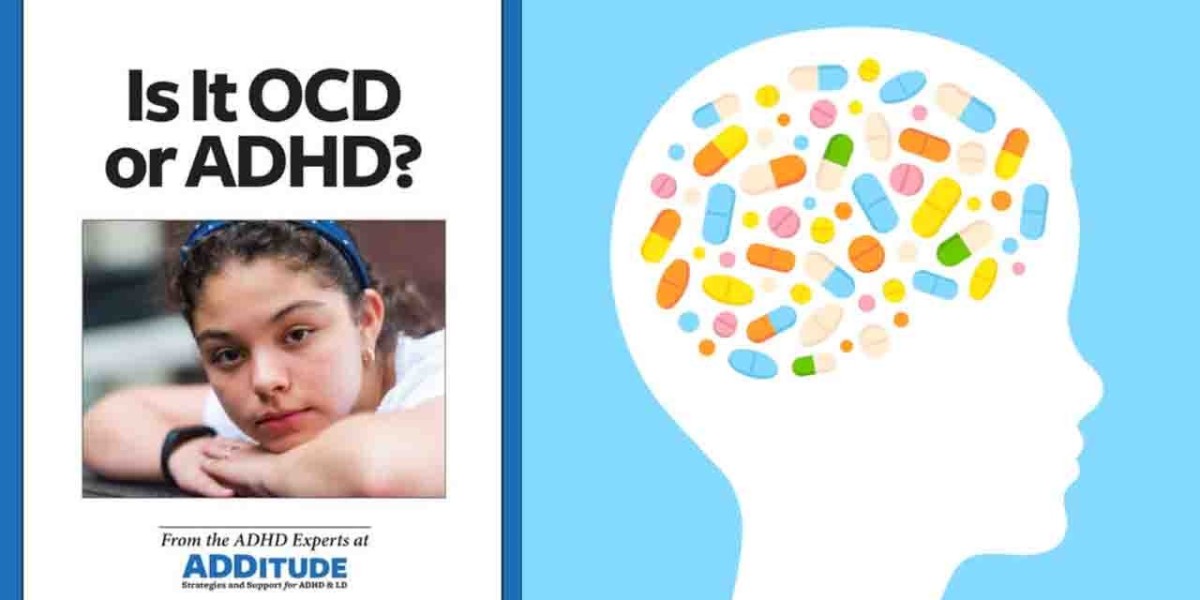Medication for OCD and ADHD plays a vital role in managing the symptoms of these complex conditions. For OCD, selective serotonin reuptake inhibitors (SSRIs) are commonly prescribed to reduce obsessive thoughts and compulsive behaviors. ADHD, on the other hand, is often treated with stimulant medications like methylphenidate or non-stimulants such as atomoxetine to improve focus and impulse control. In cases where both conditions coexist, a tailored treatment plan may involve a combination of these medications to address overlapping symptoms. Consulting a healthcare professional is essential to determine the most effective medication for OCD and ADHD based on individual needs.
What is OCD?
Obsessive-Compulsive Disorder (OCD) is a mental health condition characterized by persistent, unwanted thoughts (obsessions) and repetitive behaviors (compulsions) that an individual feels compelled to perform to alleviate the anxiety caused by these thoughts. These obsessions and compulsions can interfere with daily functioning, relationships, and overall well-being. The severity of OCD can range from mild to debilitating, and it can affect both adults and children.
What is ADHD?
Attention Deficit Hyperactivity Disorder (ADHD) is a neurodevelopmental disorder that affects a person’s ability to focus, regulate impulses, and control their activity levels. People with ADHD may struggle with staying organized, following through with tasks, and sitting still for extended periods. ADHD is often diagnosed in childhood, but its symptoms can persist into adulthood, affecting various aspects of life, including work, school, and relationships.
Medications for OCD:
Medication for OCD and ADHD is often combined with therapy, particularly Cognitive Behavioral Therapy (CBT), to provide the most effective treatment. The primary medications prescribed for OCD are Selective Serotonin Reuptake Inhibitors (SSRIs) and antipsychotic medications. Let’s take a closer look at each of these.
Selective Serotonin Reuptake Inhibitors (SSRIs)
SSRIs are the most commonly prescribed medications for OCD. They work by increasing the levels of serotonin, a neurotransmitter in the brain that helps regulate mood and anxiety. By boosting serotonin, SSRIs can help alleviate the symptoms of OCD by reducing the frequency and intensity of obsessive thoughts and compulsive behaviors. Some commonly prescribed SSRIs for OCD include:
- Fluoxetine (Prozac): This is one of the most well-known SSRIs and is effective in treating OCD. Fluoxetine is typically prescribed at a higher dose for OCD than for depression.
- Sertraline (Zoloft): Another commonly used SSRI, sertraline is effective for treating both depression and OCD. It works by enhancing serotonin levels in the brain.
- Fluvoxamine (Luvox): Fluvoxamine is specifically approved for the treatment of OCD and has shown positive results in managing obsessive-compulsive symptoms.
- Paroxetine (Paxil): Paroxetine is another SSRI that can be prescribed to individuals with OCD. It is typically well-tolerated but may cause side effects such as weight gain or sexual dysfunction in some individuals.
How SSRIs Help in Medication for OCD and ADHD:
SSRIs are believed to help in treating OCD by enhancing serotonin transmission, which is thought to be dysfunctional in individuals with OCD. By regulating serotonin levels, SSRIs can reduce the anxiety and intrusive thoughts that fuel obsessive-compulsive behaviors. The result is a decrease in the need to perform compulsive actions to relieve anxiety.
Antipsychotic Medications
In cases where SSRIs alone do not provide sufficient relief from OCD symptoms, doctors may prescribe atypical antipsychotics. These medications are often used as adjuncts to SSRIs to help manage severe symptoms. Some antipsychotic medications used in OCD treatment include:
- Risperidone (Risperdal): Risperidone is commonly prescribed alongside SSRIs to treat OCD when patients do not respond well to SSRIs alone.
- Aripiprazole (Abilify): Aripiprazole is another atypical antipsychotic that may be added to an SSRI regimen in cases where symptoms are resistant to SSRIs alone.
Medications for ADHD:
The treatment of ADHD is multifaceted, and medications are often the cornerstone of managing symptoms. The two primary categories of medications used to treat ADHD are stimulants and non-stimulants. Both are effective in improving focus, reducing hyperactivity, and controlling impulsivity.
Stimulant Medications
Stimulants are the most widely prescribed medications for ADHD and are considered the first-line treatment. These medications increase the levels of dopamine and norepinephrine in the brain, which helps improve focus, attention, and impulse control. Some common stimulant medications include:
- Methylphenidate (Ritalin, Concerta, Daytrana): Methylphenidate is one of the oldest and most commonly prescribed stimulant medications for ADHD. It works by increasing the amount of dopamine and norepinephrine in the brain, which improves attention and reduces impulsivity.
- Amphetamine Salts (Adderall, Vyvanse): Amphetamines are another class of stimulant medications used to treat ADHD. They are effective in boosting dopamine and norepinephrine levels and are often preferred for their longer-lasting effects.
How Stimulants Help in Treating ADHD:
Stimulants improve the functioning of neurotransmitters in the brain, particularly dopamine and norepinephrine, which play critical roles in attention, focus, and impulse control. By enhancing the availability of these neurotransmitters, stimulants help reduce the core symptoms of ADHD, such as inattention, hyperactivity, and impulsivity. These medications are often fast-acting and can significantly improve a person’s ability to focus and complete tasks.
Non-Stimulant Medications
Non-stimulant medications are an alternative for individuals who do not respond well to stimulants or who experience undesirable side effects. These medications may take longer to take effect, but they can be just as effective in treating ADHD symptoms. Some common non-stimulant medications include:
- Atomoxetine (Strattera): Atomoxetine is a norepinephrine reuptake inhibitor that helps increase norepinephrine levels in the brain. It is non-stimulant and is often prescribed when stimulants are not an option.
- Guanfacine (Intuniv): Guanfacine is an alpha-2 adrenergic agonist that is sometimes used in ADHD treatment. It works by affecting certain receptors in the brain, which helps to regulate hyperactivity and impulsivity.
How Non-Stimulants Help in Treating ADHD:
Non-stimulant medications work by targeting different neurotransmitters than stimulants. For example, atomoxetine increases norepinephrine levels, which plays a role in regulating attention and focus. Guanfacine helps with impulse control and hyperactivity by affecting receptors in the brain that influence attention and behavior.
Medications for Co-occurring OCD and ADHD:
For individuals who suffer from both OCD and ADHD, medication treatment can become more complex. However, there are ways to manage both conditions simultaneously with the right medication approach. Typically, treatment begins with addressing the more prominent symptoms, with medications for OCD (SSRIs) or ADHD (stimulants) being prescribed first. If necessary, a combination of medications, such as SSRIs for OCD and stimulants for ADHD, may be used. In some cases, additional medications like atypical antipsychotics for OCD or non-stimulants for ADHD may be introduced.
Side Effects of Medications:
While medications can provide significant relief from the symptoms of OCD and ADHD, they can also come with side effects. These side effects vary depending on the medication, dosage, and individual response. Common side effects of OCD medications (SSRIs and antipsychotics) include:
- Nausea
- Insomnia
- Weight gain
- Sexual dysfunction
- Increased anxiety during the initial phase of treatment
For ADHD medications, common side effects can include:
- Appetite suppression
- Sleep disturbances
- Increased heart rate or blood pressure
- Irritability or mood swings
It is essential for individuals taking these medications to work closely with their healthcare provider to monitor for side effects and adjust treatment as needed.
Final Thoughts
Medication for OCD and ADHD have proven to be effective tools in managing symptoms and improving the overall quality of life for individuals living with these conditions. While SSRIs and antipsychotics are the mainstay treatments for OCD, stimulants, and non-stimulants are primarily used for managing ADHD. For those with both conditions, a tailored approach to medication can help address the unique challenges they face. Individuals need to work closely with their healthcare providers to determine the best medication regimen and to monitor for any side effects. With the right treatment plan, individuals with OCD and ADHD can lead productive and fulfilling lives.









